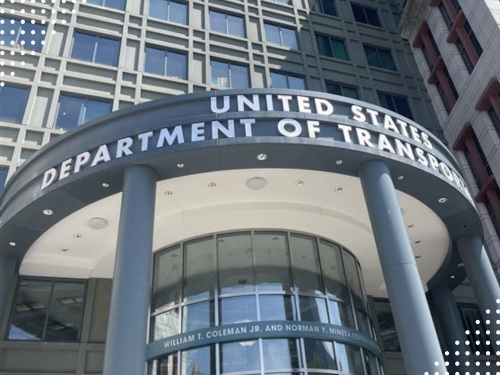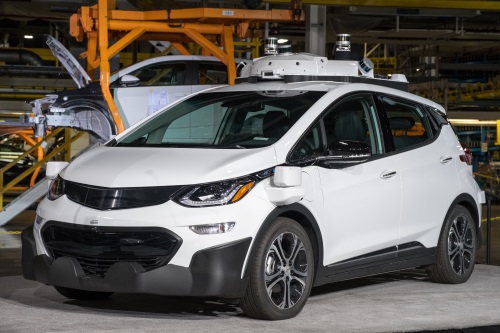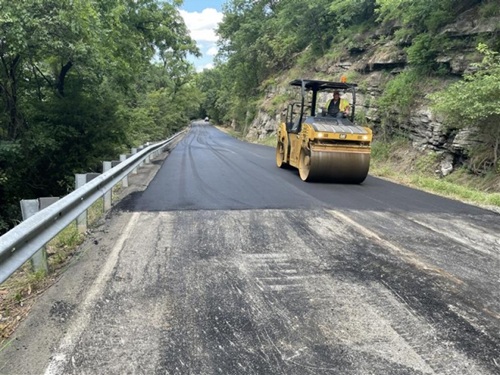Rep. Greg Walden, R-Ore., and Rep. Bob Latta, R-Ohio, re-introduced the Safely Ensuring Lives Future Deployment and Research in Vehicle Evolution or SELF DRIVE Act on September 23 in an effort to create what they call a “national framework” for the development and testing of autonomous vehicles or AVs.
[Above photo by General Motors.]
Rep. Walden – ranking member on the House of Representatives Energy and Commerce Committee – and Rep. Latta, ranking member on the House Communications and Technology Subcommittee, noted in a joint statement that, “there is a clear global race to AVs and for the U.S. to win that race.”

While the House unanimously passed the original SELF DRIVE Act introduced by Rep. Latta in 2017, the Senate did not pass similar legislation – the American Vision for Safer Transportation through Advancement of Revolutionary Technologies or AV START Act – before the 115th Congress wrapped up in 2018.
“From increasing mobility for seniors and self-sufficiency for those with disabilities to providing contactless deliveries during the COVID-19 pandemic, AVs have limitless potential to drastically improve the lives of Americans,” Latta and Walden noted. “We cannot allow the U.S. to be outpaced and this effort strikes a critical balance of ensuring safe development and deployment of AVs while keeping the U.S. at the forefront.”
Ensuring that autonomous vehicles operate in a safe and reliable manner – particularly when it comes to navigating complex street networks – were two of the key focal points of a February hearing held by the House of Representatives Committee on Energy and Commerce.

“Safety and deployment must come hand-in-hand – we cannot have one without the other,” noted Rep. Frank Pallone, Jr., D-N.J., the committee’s chair, in his remarks at the hearing. “Because, ultimately, public acceptance of self-driving cars depends on their reliability and safety. Troubling safety incidents, regulatory black holes, and lax oversight threaten to disrupt this critical balance and the future of this technology itself.”
This renewed legislative push comes at a time when positive public interest in AVs may be growing.

According to the inaugural Motional Consumer Mobility Report released on September 24, one fifth of Americans are more interested in driverless vehicles than they were prior to the COVID-19 pandemic. Furthermore, two-thirds believe that self-driving cars are the “way of the future,” the report found.
“People are more open to driverless vehicles than ever before – but seeing is believing, and this is technology few people have actually experienced,” noted Karl Iagnemma, president and CEO of Motional, in a statement.
“This report makes clear that familiarity is the key to adoption,” he said. “As we get more cars on the road, we’ll bridge the gap between the perception of this technology, and the reality of how positively and permanently it will change our daily lives.”
 Nation
Nation


